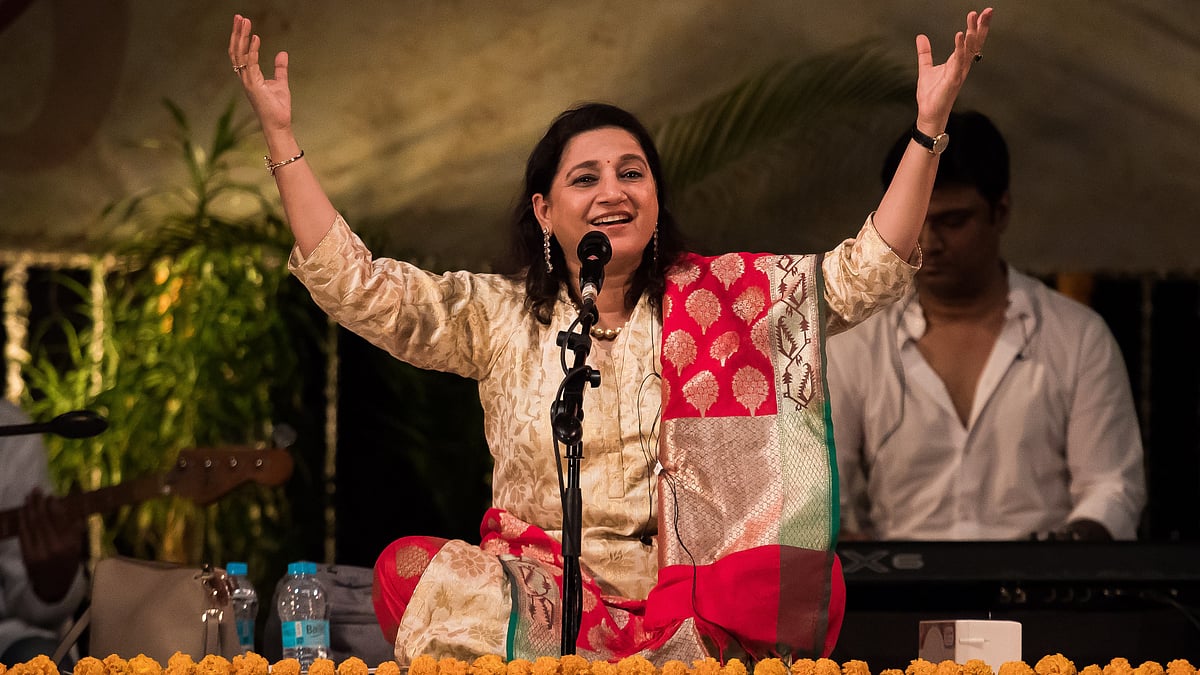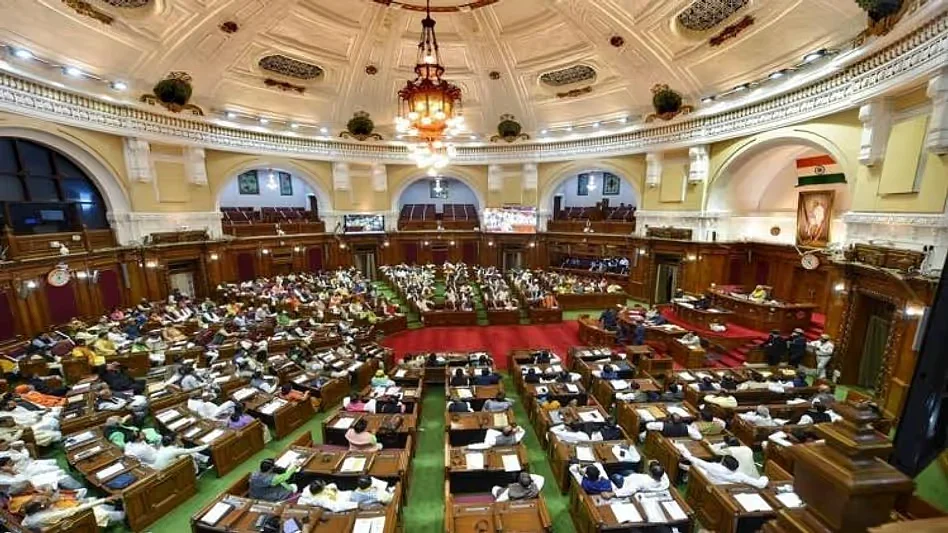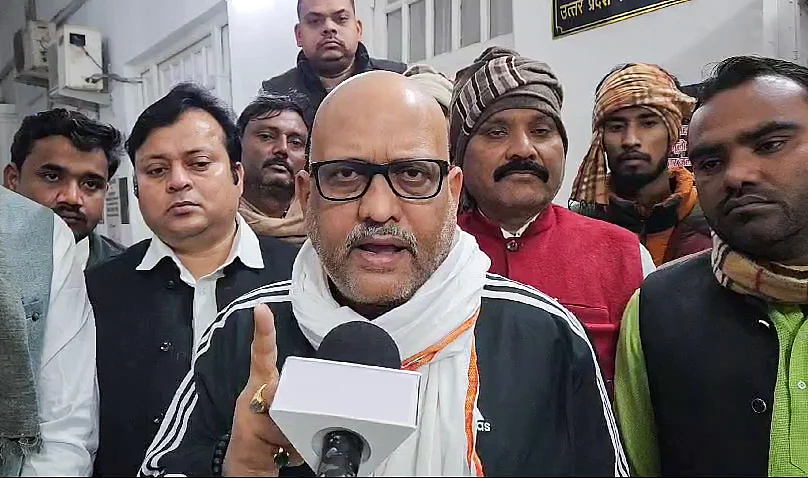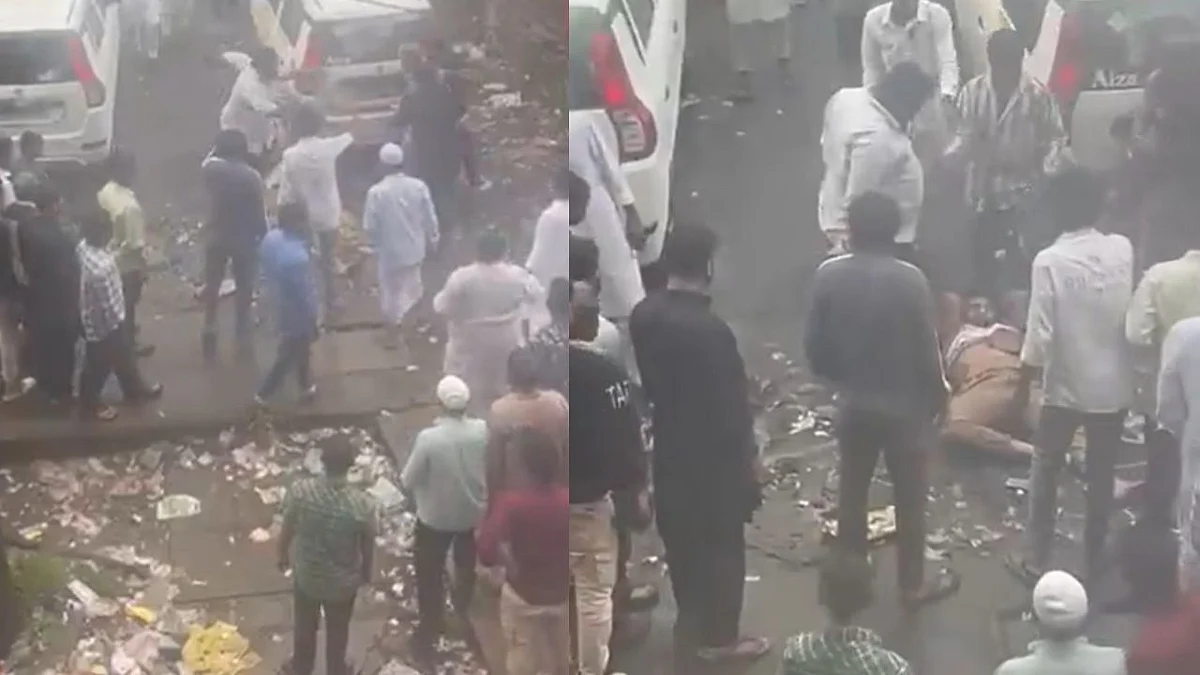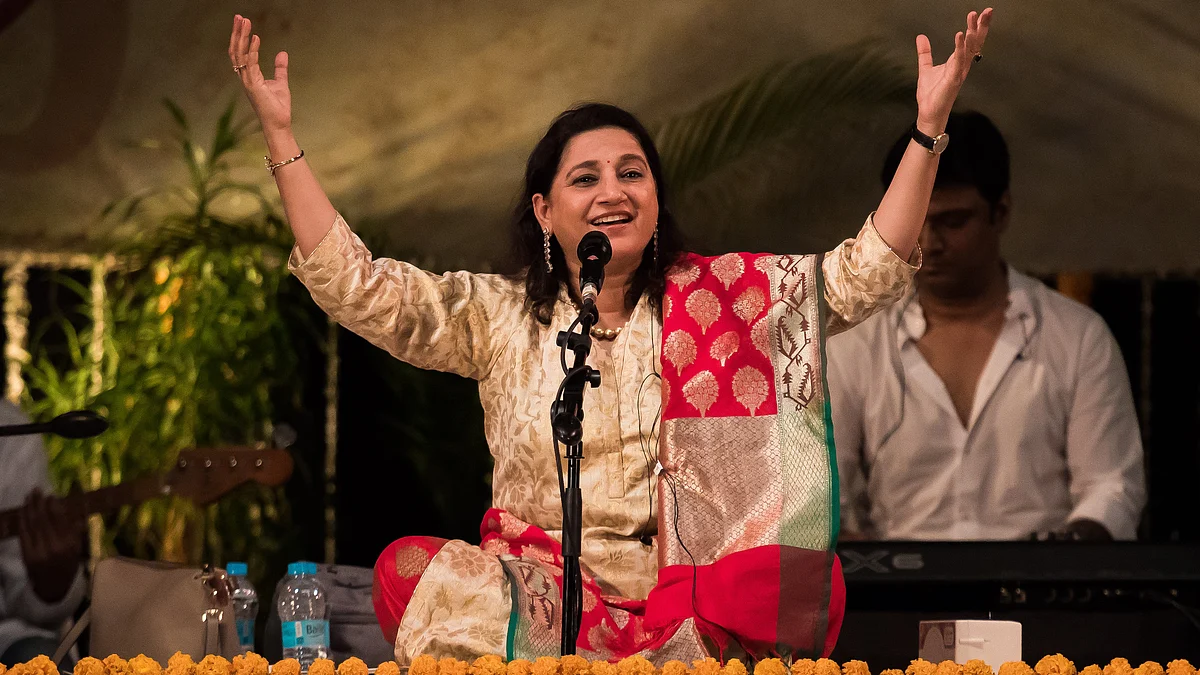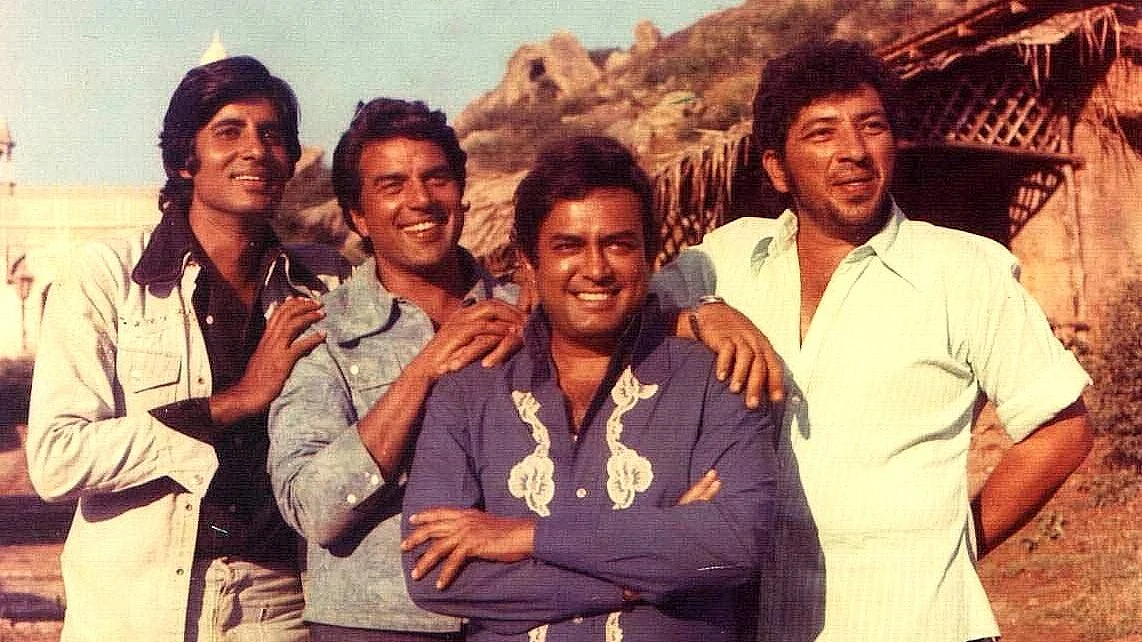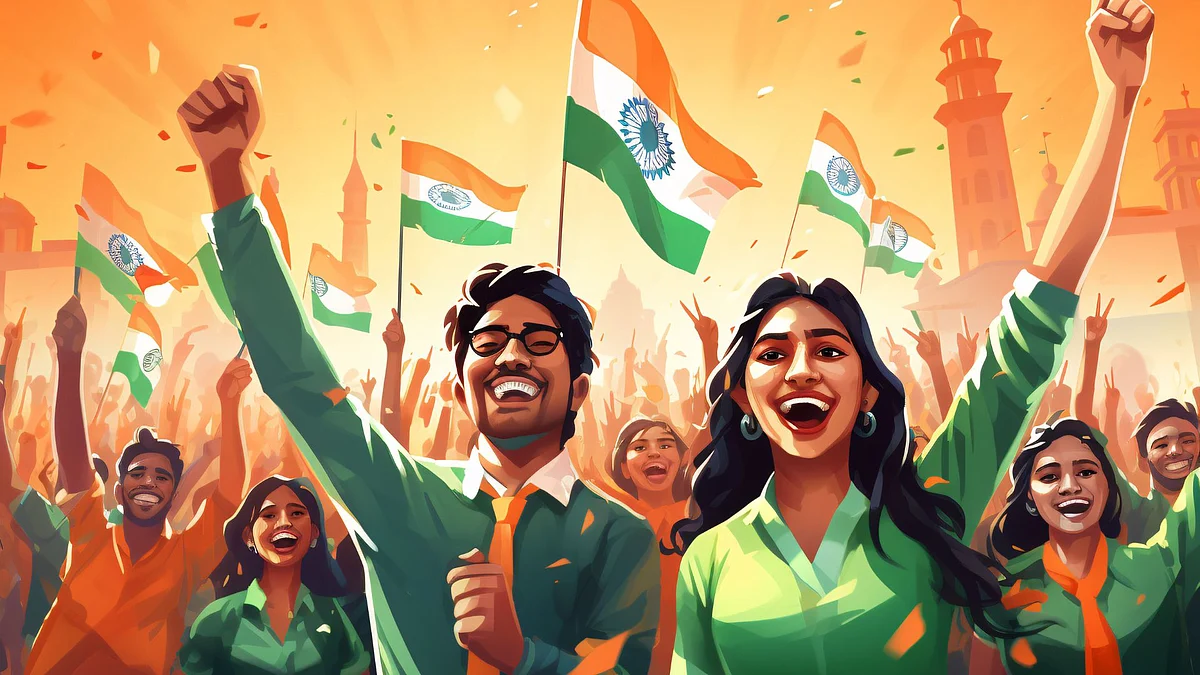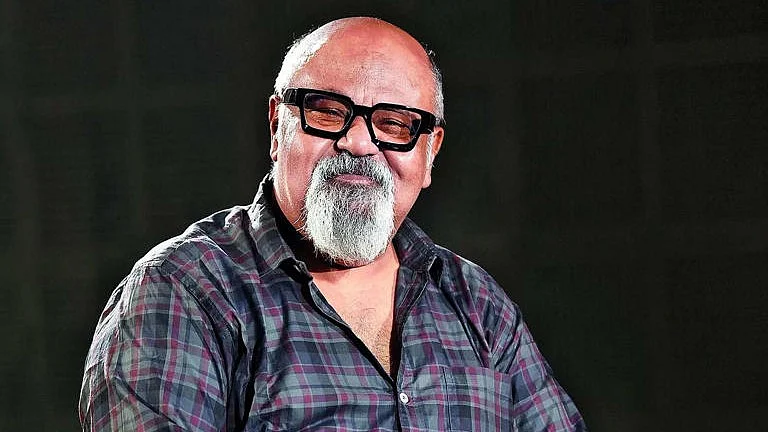Playback singer Kavita Seth is well known for her soulful voice and her ability to blend traditional Sufi and folk music with contemporary sounds. She has won the Filmfare Award twice in the Best Female Playback singer category, once in 2010 for her classical Sufi rendition of Iktara (Wake Up Sid — 2009) and in 2023 for her song Rangisari from the film JugJugg Jeyoo (2022), this is besides other citations and awards.
This coming Independence weekend, the singer is all set to bring her music and mellifluous voice to regale audiences at a fundraiser concert for ‘Alert-India’ on August 16, 2025, at the Nehru centre, Worli. Alert India is a voluntary charitable organization, working for over four decades to eradicate leprosy from India. Seth has been a steadfast friend and supporter of Alert India over the years. You surely don’t want to miss this musical night with Kavita Seth while you also support a social cause.
In an interview with The Free Press Journal, the playback singer, who is best known for her top chart hit Iktara, speaks about her association with Alert India, her journey from Bareilly to Mumbai, collaborations and what freedom means to her.
Excerpts from the interview:
Tell us about your upcoming performance and musical fundraiser in aid of Alert India? What can the audience expect?
I’m very excited to be working again with Alert India, a remarkable NGO that has been sincerely helping leprosy patients for decades. My association with them goes back over 10 to 15 years. I’ve done fundraising concerts for them in the past. I know Veera Rao and the whole team, they work with such honesty and dedication. As an artist who has received so much love from society, I feel this is my way of giving back. I’ve planned a special, soul-stirring evening for the audience.
From Bareilly to Mumbai, what were some of the challenges you faced when you first came to Mumbai?
The journey from Bareilly to Mumbai has been very interesting. Challenges come with anything you take up. So I wouldn’t say these are challenges to me, rather they are stations of life. Some (stations) are beautiful, some rough. When you want to achieve something big, these small things don’t matter. You don’t think about the place (Bareilly) you came from or what you can accomplish, you just want to cross the hurdle and move on. So I just kept crossing all these things.
Your most requested song remains Iktara from Wake Up Sid. Did this song really create an impact on your singing career?
Iktara was a very important song for my Bollywood career. It has given my career a boost. Wherever I go to perform and at all my concerts, everyone there ask me to perform this song and I readily oblige. I am very thankful to Amit Trivedi, Javed Akhtar, Ayan Mukerji, Amit Bhattacharya, who compiled this song for me and gave me such a beautiful song to sing. I am very grateful to all of them.
During the pandemic you started offering a music and meditation course? What inspired you to have meditation discourses?
Yes, during the pandemic, people were dealing with anxiety and stress. I’ve always had a spiritual bent, and even before I knew the word “healing,” I believed in the power of music to soothe the soul. I began conducting meditation sessions through music, and soon people began to benefit. It gave them peace and gave me purpose.
Who would you say inspired you to become a musician? Who were your idols?
Spiritually, I’ve been inspired by Kabir, Swami Vivekananda, and Mirabai. Kabir’s dohas, Vivekananda’s wisdom, and Mirabai’s unwavering devotion have all left a mark on me. Vivekananda lived only till 35, yet his teachings continue to inspire millions. Mirabai’s purity and commitment to her faith are timeless. In Bollywood, my idol is Guru Dutt. His films and songs were way ahead of their time. He may not have received the recognition he deserved in his lifetime, but his legacy lives on.
How do you balance the roles as a playback singer, composer, and teacher?
When your chakras are aligned, you can balance anything. I adapt to the role needed of me, whether as a guru, a singer, or a composer. I approach every new experience as a blank slate.
Over the span of nearly two decades, you have been pursuing the realms of Sufi music, film soundtracks and electro-fusion. How do you consider such offers from the electronic music world?
I enjoy collaborations. Whether it’s Sufi, film, or electronic music, I’m always open. Collaborating brings fresh perspectives and leads to unique outcomes. I find joy in the creative synergy.
You were music director for the film JugJugg Jeyoo alongside your son, Kanishk Seth. Any upcoming projects you are working on?
Earlier, I called myself an incidental composer, but now I say it proudly, I’m officially a composer. Kanishk and I have several projects lined up after JugJugg Jeyoo. We’ll announce them soon.
How did you come to work on Mira Nair’s series A Suitable Boy, being the musical voice for actor Tabu’s character Saeeda Bai.
It was a great experience working with Mira Nair. I composed a ghazal for Tabu and also sang it for her. So when you work with a big name like Mira Nair, you just observe and see how they work and in turn you get to learn so much. When we were working on the project, she (Mira) had everything ready at all times and she knew exactly one hundred percent what she wanted from me and how to get it. She is a very good director with a lot of experience.
August 15 is Independence Day, do you think there is neutrality when it comes to male music artists being paid more?
I wish everyone a very Happy Independence day. I don’t believe in comparing men and women. It’s not about who earns more, it’s about doing meaningful work and supporting each other. That’s what truly matters.
You composed three songs in the film Yeh Mera India. What does freedom mean to you?
This was right at the beginning of my career. I composed three songs in the film and sadly the film didn’t really make it very big, but it was a good film and it gave me a good experience too. I think I got a lot of freedom to work on this film, from composing the songs to a lot more. Everyone who is in the creative line, I think freedom is very important. As an independent artist freedom is must in every field. If you have the freedom you are able to do work better. This is what I feel.
What makes you proud to be an Indian and how do you celebrate Independence Day?
I’m proud of my Indian heritage and grateful to be born in this country. While every country has its uniqueness, I feel blessed to represent India and its culture on global stages. Every concert abroad feels like a mini-Independence Day to me. We must carry forward the sacrifices of our freedom fighters by making India a better, more beautiful place for future generations.
